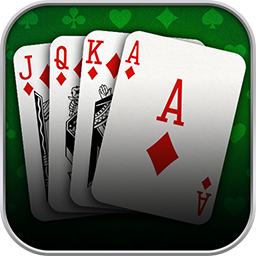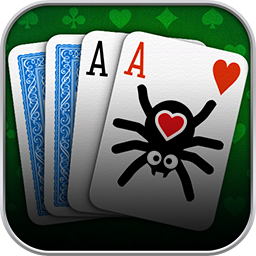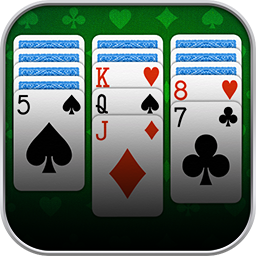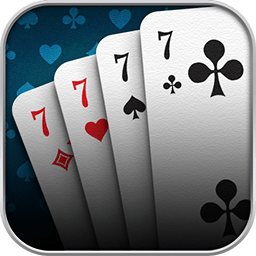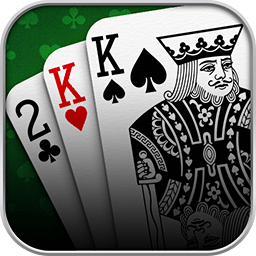Use this handy alphabetical overview to get informed about Rummy phrases quickly! When you play Rummy, you might come across unfamiliar words and terminology. Our glossary contains the most important Rummy terms. For infos on how to play Rummy, jump to our Rummy manual.
40 Points for First Meld (Custom Rule):
This custom rule raises the score requirement for the initial meld from 30 to 40 points.
Ace:
In Rummy, the Ace scores eleven points if it follows the King in a sequence or remains in hand at the end of a round. Placed in front of a Two in a sequence, the Ace scores only 1 point on the playing field. In the basic game, the Ace can sit either at the beginning or end of a sequence, but not between two cards.
Adding cards:
This refers to extending existing melds with cards from your hand. You can only do so in your own turn and after completing your initial meld. The added cards must follow the rules for legal melds.
Book:
See Group.
Casino Scores (Custom Rule):
This custom rule modifies the scoring at the end of a round. For example, the winner gains bonus points for the cards they played. You can find detailed information here.
Custom Rules:
When creating a table at the Rummy Palace, you can adjust the game to your interest. Choose from the rules Short Deck, 40 Points for First Meld, Without First Meld, Cyclic Sequences, No Jokers, Strict Jokers, Strict Groups, Knocking, Win without Discarding, Casino Scores, and Training.
Cyclic Sequences (Custom Rule):
With this custom rule, the Ace can also sit between other cards in sequences instead of at the beginning or end only. Sequences are still limited to 13 cards at most.
Deck:
The traditional Rummy deck comes with 13 ranks which each occur twice in four suits and six additional Jokers; 110 cards in total. Rummy mostly uses french playing cards, including Ace, pip cards from Two to Ten, and the face cards. The suits of the rummy cards are thus Clubs, Spades, Hearts, and Diamonds.
Discard Pile:
At the beginning of the round, one card from the stock is revealed. It is now the base of the discard pile. Players can either draw a card from the stock or from the discard pile to begin their turn. After making all possible moves, each player ends their turn by discarding one card from their hand onto the open discard pile.
Face Cards:
These cards, also known as picture cards, show members of the court: Jacks (Knaves), Queens, and Kings. They score ten points each.
First Meld:
See Initial Meld.
French Playing Cards:
Rummy primarily uses French playing cards with Aces, pip cards Two to Ten, and the face cards Jack, Queen, and King. For further distinction, the cards are assigned to four suits – Clubs, Diamonds, Hearts, and Spades. In Rummy, each card occurs twice – so 104 cards and six Jokers, totaling at 110 Rummy cards. Regional variations can be played with German, Swiss-German, or other locally preferred decks.
Going Rummy:
If nobody else melded yet and you meld all cards during the same turn, you are going Rummy. In a round like that, all points are doubled.
Group:
Groups are one of two types of melds in Rummy. They are also called sets or books and consist of three to four cards of the same rank but different suits. Any rank, except Jokers, can form a group.
Initial Meld:
In Rummy, melding cards in groups and sequences is a key element. Each player’s first meld of a round must reach a minimum value of 30 points. These points can also be reached by playing several melds within the same turn.
Joker:
The Joker can replace missing cards in any meld. The Joker’s value adjusts to the value of the replaced card. Keep this in mind when determining the score of your first meld! Later, you can swap Jokers in melds for the fitting card. You can only do so during your turn and after playing the initial meld. A Joker in hand at the end of a round costs you 20 points. Jokers must not outnumber the regular cards in a meld, nor can they form a meld on their own.
Knocking (Custom Rule):
With this custom rule, you can gain the last discarded card even outside of your turn by knocking. If you knock and receive a card, you must draw an additional card from the stock. Whoever knocks or draws first gets the card. The next player in regular order does not have to knock but can draw from the stock or discard pile. You cannot knock for a card you just discarded. Hence, this rule only works with three and more players.
Meld:
These combinations of at least three cards are the heart of Rummy. They are called melds, which are divided into groups (cards of the same rank) and sequences (cards of consecutive ranks). The act of playing them is called melding.
Melding:
Playing cards in certain combinations, i.e., groups or sequences, by placing them visibly in the playing field is called melding.
Move:
A move is any action you can take during your turn in Rummy after drawing a card. These include melding, adding cards, and swapping Jokers. Each player’s first move in each round must be playing the initial meld.
No Jokers (Custom Rule):
All Jokers are removed from the deck. As a result, 104 instead of 110 rummy cards are in the game.
Play:
It is your objective to move all your hand cards into the playing field. You can do so by forming and playing combinations of cards, the so-called melds, or adding cards from your hand to existing melds. There are specific rules in place for each player’s initial meld.
Pip Cards:
Pip cards are playing cards with numbers from two to ten. They differ from the face cards and Aces.
Points:
See Scores.
Rank:
Each card has a rank, and their ascending order in Rummy is (Ace), 2, 3, 4, 5, 6, 7, 8, 9, 10, Jack, Queen, King, (Ace).
Rummy:
It is the name of the game. The player melding all their cards and discarding the last card on the discard pile exclaims Rummy! They won the round.
Run:
See Sequence.
Scores:
Each card has an assigned value in points: The pip cards’ values match their ranks from Two to Ten. And the face cards score ten points each. Aces score either one point when followed by the Two or eleven points when following the King or remaining in hand at the end of the round. The Joker scores 20 points when remaining in hand. In the playing field, it takes on the value of any card it replaces. The points are relevant for determining the value of the first meld and for the player scores at the end of the game: Each player loses points for the cards left in their hand while the winner adds the sum of these points to their score. If there is no winner, all players lose points.
Sequence:
Sequences are one of two types of melds in Rummy. They are also called runs and consist of three to 13 cards of the same suit in consecutive ranks. Rummy’s ascending order of ranks is (Ace), 2, 3, 4, 5, 6, 7, 8, 9, 10, Jack, Queen, King, (Ace). The Ace can either open or conclude a sequence, but it cannot sit between two cards!
Set:
See Group.
Short Deck (Custom Rule):
With this custom rule, only one deck of French-suited playing cards is used, i.e., 55 cards – three of them Jokers. Additionally, in a two-player game, players receive ten hand cards each, or seven each with more players. And the custom rule Without First Meld is automatically enabled.
Stock:
After dealing at the beginning of a round, the remaining cards are placed face-down in the middle of the table. That pile is now the stock, which players can draw from to begin their turns. If the stock is exhausted, the round ends without a winner.
Strict Groups (Custom Rule):
This custom rule specifies the order of suits in groups: Clubs, Spades, Hearts, Diamonds must always be followed without interruption. That requires special attention with Jokers: For one, Clubs – Joker – Hearts would work, since only Spades is missing, which is replaced by the Joker. But Joker – Clubs – Spades would not work since Clubs is the first suit of the order. Hence, the Joker cannot replace any card before it.
Strict Jokers (Custom Rule):
Using this custom rule, you can neither discard Jokers nor have two consecutive Jokers in a meld. Before swapping a Joker in a group with a hand card, the group must be complete, i.e., contain four cards. Swapped Jokers must be played within the same turn.
Suit:
French playing cards have symbols on each card – Clubs, Diamonds, Hearts, and Spades. These symbols are called suits in card games. They are essential to playing Rummy: Sequences can only contain cards of the same suit, while groups cannot contain two cards of the same suit.
Swap Jokers:
If you have the card in your hand that a Joker is currently replacing in a meld on the playing field, you can swap your card for the Joker. You are only allowed to swap Jokers after you have played your initial meld.
Training (Custom Rule):
With this custom rule, the results of the table do not count for the league. You are still gaining experience points, though.
Turn:
After the previous player discards a card, it is your turn. To begin your turn, you can draw a card either from the stock or the discard pile. If the new card enables you to form a meld, you may play it. And if you have already completed your initial meld, you can also add cards to existing melds or swap Jokers in melds with matching cards from your hand to gain the Jokers. You must end every turn by discarding a card.
Win Without Discarding (Custom Rule):
You do not have to discard the last hand card anymore to finish the round. Instead, you can meld it or add it to a meld in the playing field.
Without First Meld (Custom Rule):
There is no score requirement for the initial meld of each round at this table.

